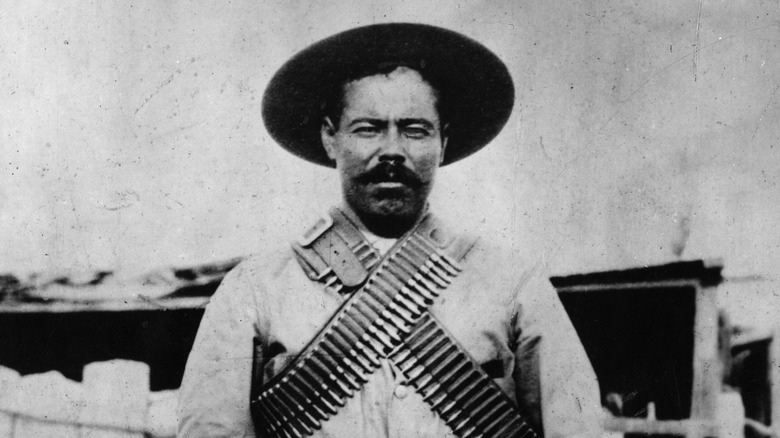The Surprising Time The US Tried To Invade Mexico
The United States has not always maintained a peaceful relationship with its southern neighbor, and clashed a few times in the 19th century. In the wake of World War I and the buildup to its inevitable, gruesome sequel, the American military began analyzing and preparing for several combat scenarios from likely to the far-fetched, and that included an invasion of Mexico (via Mental Floss).
The Americans devised a series of color-coded war plans, and War Plan Green concerned the potential collapse of the Mexican government. If this were to happen, the U.S. military would invade, overthrow the new revolutionary government, and take control of Mexico's assets. This would be done through a navy attack on both of Mexico's coasts while troops moved across the border, seizing major cities and squashing guerilla rebellions in order to establish a U.S.-friendly government. Yet all this followed a small, brief, yet actual invasion of Mexican soil right in the midst of the First World War.
The US invaded during the Mexican Revolution
At the start of the 20th century, Mexican-American relations were sour and volatile. Mexico was going through a revolution that had on occasion spilled across the border or targeted foreign-owned property within Mexico. In 1912, President Taft had War Plan Green developed in case forces were needed to protect the property (via Hisour).
In 1914, America's army and navy got involved in the revolution. The navy bombarded the port city of Veracruz, forcing the Mexican president to resign. Two years later, a force under General John Pershing was sent to recover the revolutionary leader Pancho Villa after he attacked the city of Columbus, New Mexico. The following year, British intelligence intercepted the infamous Zimmerman Telegram, where Germany hoped to entice Mexico to attack their northern neighbors; the resulting furor was a major contributor to the United States joining World War I, always keeping a steady eye on the lands south of the Rio Grande for the next few decades.

